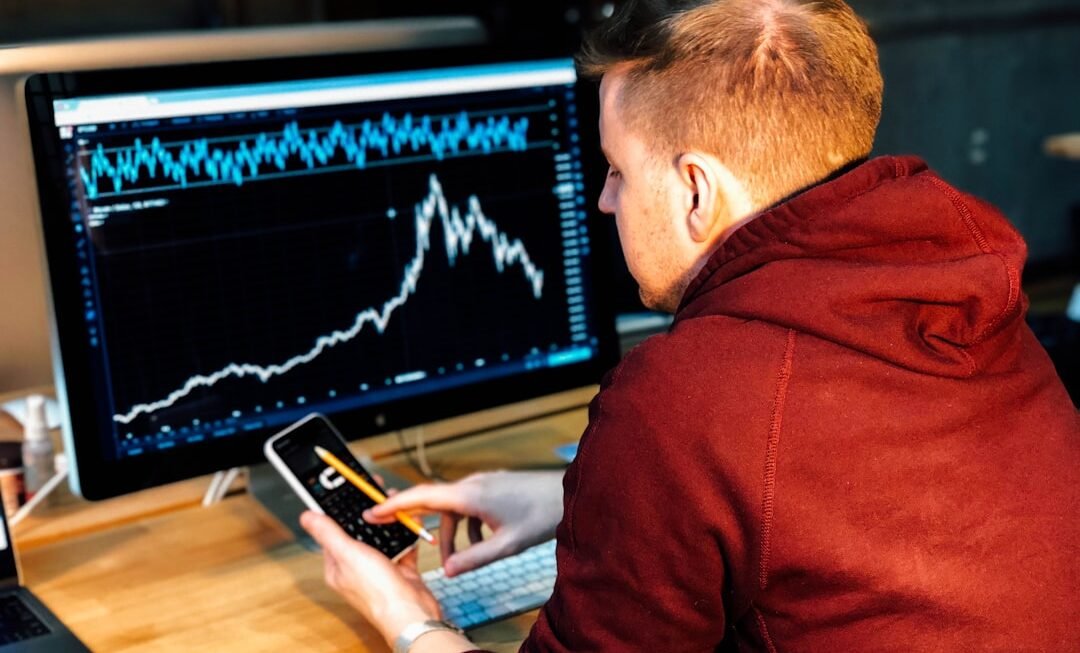The advent of artificial intelligence (AI) has revolutionized numerous sectors, and finance is no exception. AI trading platforms have emerged as powerful tools that leverage advanced algorithms and machine learning techniques to analyze market data, predict price movements, and execute trades with remarkable speed and efficiency. These platforms are designed to assist both novice and experienced traders in navigating the complexities of financial markets, offering insights that were previously unattainable through traditional trading methods.
As the financial landscape continues to evolve, the integration of AI into trading strategies is becoming increasingly prevalent, reshaping how traders approach investment decisions. AI trading platforms utilize vast amounts of historical and real-time data to identify patterns and trends that can inform trading strategies. By employing sophisticated algorithms, these platforms can process information at a pace far beyond human capability, allowing for rapid decision-making in volatile market conditions.
The ability to analyze multiple data points simultaneously enables traders to capitalize on fleeting opportunities, making AI trading platforms an attractive option for those looking to enhance their trading performance. As the technology matures, the potential for AI-driven trading solutions continues to expand, promising a future where automated systems play an even more significant role in financial markets.
Key Takeaways
- AI trading platforms use advanced algorithms to analyze market data and make trading decisions.
- Key features of AI trading platforms include real-time market analysis, automated trading, and risk management tools.
- Customization options for AI trading platforms allow users to tailor the platform to their specific trading strategies and preferences.
- Security considerations for AI trading platforms include data encryption, secure login processes, and regular security updates.
- Advantages of using AI trading platforms include faster decision-making, reduced emotional trading, and the ability to analyze large amounts of data.
Key Features of AI Trading Platforms
Data-Driven Insights for Informed Decisions
This capability enables traders to make informed decisions based on data-driven information rather than relying solely on intuition or experience. AI trading platforms provide traders with valuable insights, allowing them to make more accurate predictions and minimize potential losses.
Automation for Efficient Trading
Another critical feature of AI trading platforms is their automation capabilities. Many platforms offer automated trading options, where users can set specific parameters for buying and selling assets based on predefined criteria. This automation not only saves time but also reduces the emotional stress associated with trading decisions.
Maintaining Discipline with Automation
For instance, a trader might set a platform to automatically sell a stock if it drops below a certain price or to buy when specific technical indicators signal a potential upward trend. This level of automation can help traders maintain discipline and adhere to their strategies without being swayed by market emotions.
Customization Options for AI Trading Platforms
Customization is a vital aspect of AI trading platforms, allowing users to tailor their trading experience according to their individual preferences and strategies. Many platforms offer a range of customizable features, including the ability to adjust risk parameters, select specific asset classes, and define trading strategies based on personal investment goals. For instance, a trader focused on long-term growth may choose to customize their platform to prioritize stocks with strong fundamentals, while a day trader might configure it to focus on high-volatility assets that present short-term opportunities.
Moreover, some AI trading platforms provide users with the ability to create and test their own algorithms. This feature is particularly appealing to more experienced traders who wish to implement unique strategies that reflect their market insights. By allowing users to backtest their algorithms against historical data, these platforms enable traders to refine their strategies before deploying them in live markets.
This level of customization not only enhances user engagement but also empowers traders to take control of their investment approaches in a way that aligns with their risk tolerance and financial objectives.
Security Considerations for AI Trading Platforms
As with any technology that handles sensitive financial information, security is a paramount concern for AI trading platforms. These platforms must implement robust security measures to protect user data and prevent unauthorized access. Encryption protocols are commonly employed to safeguard personal information and transaction details during transmission.
Additionally, many platforms utilize two-factor authentication (2FA) as an added layer of security, requiring users to verify their identity through multiple means before accessing their accounts. Furthermore, the regulatory landscape surrounding financial technology is continually evolving, with authorities imposing stringent requirements on trading platforms to ensure consumer protection. Compliance with regulations such as the General Data Protection Regulation (GDPR) in Europe or the Securities Exchange Act in the United States is essential for maintaining user trust.
Platforms that prioritize transparency in their operations and adhere to regulatory standards are more likely to gain credibility among users, fostering a sense of security in an otherwise volatile environment.
Advantages of Using AI Trading Platforms
The advantages of utilizing AI trading platforms are manifold, particularly in terms of efficiency and accuracy. One significant benefit is the speed at which trades can be executed. In fast-moving markets, even a few seconds can make a substantial difference in profitability.
AI trading platforms can analyze market conditions and execute trades within milliseconds, allowing traders to capitalize on opportunities that may be missed by manual trading methods. Additionally, AI trading platforms can help mitigate human error, which is often a significant factor in trading losses. By relying on data-driven algorithms rather than emotional decision-making, traders can reduce the likelihood of making impulsive choices based on fear or greed.
This objectivity can lead to more consistent performance over time, as strategies are executed according to predefined rules rather than fluctuating emotions. Furthermore, the ability of AI systems to continuously learn from new data means that they can adapt over time, potentially improving their predictive accuracy as market conditions change.
Potential Risks and Challenges of AI Trading Platforms
Risks of Inaccurate Predictions
Financial markets are influenced by a myriad of factors, including geopolitical events, economic shifts, and sudden market sentiment changes that may not be fully captured by historical data alone. As a result, there is always a risk that an algorithm could generate false signals or lead traders into unfavorable positions.
Challenges of Complexity
The complexity of AI systems can pose challenges for users who may not fully understand how these algorithms operate. While many platforms strive for transparency in their processes, the intricacies of machine learning and algorithmic trading can be daunting for novice traders.
Technical Issues and Financial Losses
This lack of understanding may lead users to place undue trust in automated systems without adequately assessing the risks involved. Additionally, technical issues such as system outages or software bugs can disrupt trading activities and result in financial losses if not promptly addressed.
How to Choose the Right AI Trading Platform
Selecting the right AI trading platform requires careful consideration of several factors tailored to individual needs and preferences. First and foremost, potential users should evaluate the platform’s features and capabilities. This includes assessing the types of assets available for trading, the sophistication of the algorithms used, and the level of customization offered.
A platform that aligns with one’s trading style—whether it be day trading, swing trading, or long-term investing—will be more beneficial than one that does not cater to specific strategies. Another critical aspect is the platform’s reputation and user reviews. Researching feedback from current users can provide valuable insights into the platform’s reliability, customer support quality, and overall user experience.
Additionally, prospective users should consider the fees associated with using the platform, including transaction costs and subscription fees for premium features. A transparent fee structure is essential for understanding the total cost of using the platform and ensuring it aligns with one’s budget.
The Future of AI Trading Platforms
The future of AI trading platforms appears promising as advancements in technology continue to reshape financial markets. With ongoing developments in machine learning and data analytics, these platforms are likely to become even more sophisticated in their predictive capabilities and user interfaces. As more traders recognize the benefits of integrating AI into their strategies, we can expect an increase in competition among platform providers, leading to enhanced features and lower costs for users.
Moreover, as regulatory frameworks evolve to accommodate technological advancements in finance, we may see greater standardization across AI trading platforms. This could foster increased trust among users while ensuring that security measures remain robust in protecting sensitive information. Ultimately, as AI continues to permeate various aspects of finance, its role in trading will likely expand further, offering new opportunities for traders willing to embrace this innovative approach to investing.












